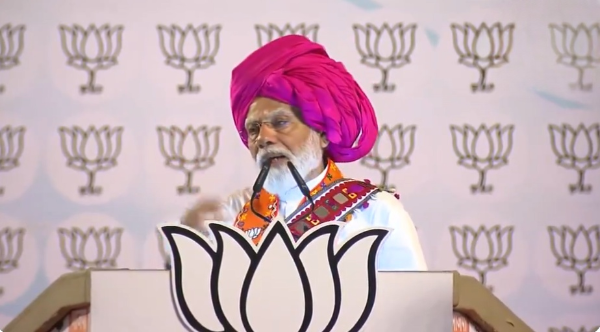Prime Minister Narendra Modi, in a public meeting in Beed, Maharashtra, made a series of bold statements about the political alliances in India. He asserted that the original Nationalist Congress Party (NCP) and the ‘nationalist’ Shivsena of Balasaheb Thackeray are both in alliance with the Bharatiya Janata Party (BJP).
“None of the nationalist forces are with Congress,” Modi proclaimed, drawing a clear distinction between the BJP and its political adversary, the Congress party.
Modi further questioned the authenticity of the parties associated with Congress, referring to them as “Fake Shivsena, fake Nationalist Congress party.” He accused these parties of making false promises and producing deceptive videos.
Modi also criticized the Congress party’s approach to work, stating, “Congress has this habit, ‘na kaam karo, na kaam karne do’…” This phrase, which translates to “do no work, let no work be done,” is a critique of what Modi perceives as the Congress party’s obstructionist tactics.
These remarks by the Prime Minister have added a new layer to the already heated political environment. With elections around the corner, such statements are likely to intensify the political discourse and could potentially influence the voting patterns of the electorate.
As India’s political landscape continues to change and evolve, the citizens will be closely watching the unfolding developments. The rhetoric and actions of the country’s leaders will undoubtedly play a crucial role in shaping the nation’s political future.



